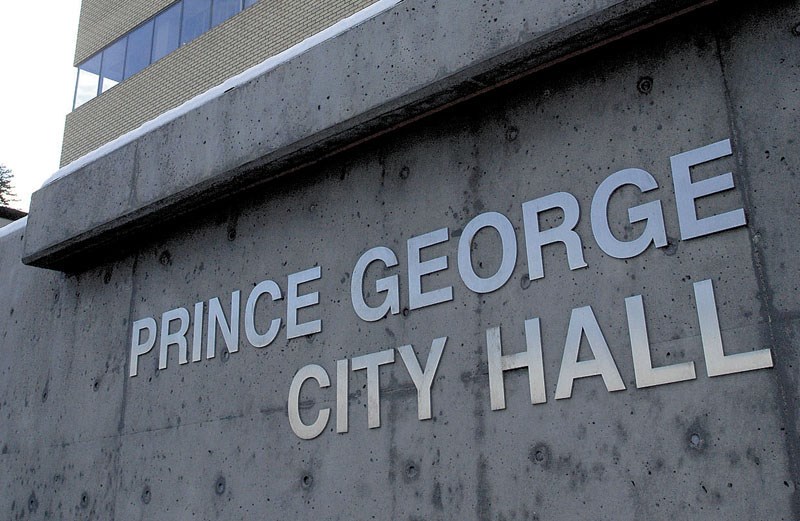A $28.3 million windfall reaped by the City of Prince George, following the end of a 17-year lease deal with FortisBC, will remain in a reserve fund for now, until more public consultation can be done.
On Monday, city council voted unanimously to keep the money where it is - in the city’s Fortis Reserve Fund – for now.
“There was no way in the world I was going to decide what to do with this money tonight,” Mayor Lyn Hall said. “This is going to take a tremendous amount of public consultation. It took a tremendous amount of work to get here.”
Following a referendum in 2004, the city entered a “lease in, lease out agreement” with FortisBC (then called Terasen Gas) to fund a natural gas distribution system in the city. The city financed the project through long-term debt, and FortisBC operated the system and paid semi-annual lease payments to the city, city director of finance Kris Dalio said.
Fortis made its final debt payment in 2021, and then exercised its option to buy the system for $29.37 million, Dalio said. After accounting, legal and other costs, as well as some capital spending commitments made between 2005 and 2008, the city was left with $28,285,863.
Coun. Brian Skakun who, along with Coun. Murry Krause, was part of the city council that made the deal in 2004, said the council of the day, city administration and members of the community were involved in advocating for the deal ahead of the referendum.
A counter-petition process in 2003 had defeated an earlier version of the deal, he added, requiring a referendum to get voter assent to borrow the money.
“This was an incredible opportunity for the community. It was really an amazing thing. We pulled together as a group and we did this, and it is benefiting the community today,” Skakun said. “We have almost $30 million and we owe it to the community to find out what they really want. This money is going to be spent wisely.”
Skakun said with an election coming this fall, council should leave the fund for the next council to decide what do with it.
“I don’t think there is a rush tonight to decide what to do,” Coun. Terri McConnachie said. “I think it should wholy sit with the next council.”
Coun. Murry Krause said that a previous city council had already expressed what should be done with the money.
In July 2014, the city council of the day supported using a portion of the proceeds from the deal to fund 30 per cent of a proposed regional performing arts centre, if other external funding from the federal or provincial government or private sector was available to cover the other 70 per cent.
That grant funding never materialized, but Krause said the intent shouldn’t be forgotten.
“My concern with it just going into a reserve is… the performing arts centre will get forgotten again,” he said.
In a report to council, Dalio wrote that the city anticipates roughly $40 million in capital projects will be needed over the coming decades to repair and replace aging recreation facilities in the city including the Prince George Playhouse, Rolling Mix Concrete Arena, CN Centre, the Prince George Conference and Civic Centre, Elksentre and Kin arenas.
Coun. Kyle Sampson said “it seems weird” that the council in 2014 committed money it didn’t have and didn’t know it would receive, but that commitment was still made.
“In 2014 this was committed. I don’t want to be part of a council that goes back on its word to a group that has been waiting a very long time for their share of the pie,” Sampson said. “I do want to find a way that we keep our commitment and act in good faith. It’s a large sum of money and its important to do the right thing.”
City manager Walter Babicz said council approved hiring a consultant to develop a “Civic Core Plan” – a 10-year land use and capital plan for the city’s downtown.
“Administration considers that to be the first step for planning some kind of facility downtown,” Babicz said.
Coun. Cori Ramsay and Coun. Garth Frizzell both expressed a desire to see the money be used to create an ongoing endowment fund – either as part of the city’s current endowment fund or as a stand-alone endowment fund. Ramsay put forward a motion to create a stand-alone endowment fund with the money, but later withdrew that motion after seeing a lack of support around the city council table.
“My concern is a one-and-done approach. This is meant to be legacy money,” Ramsay said. “I don’t think we can use this for just one project.”
The city could still use the money to build new capital projects by borrowing from the endowment, then paying it back over time, she said.
“I like the idea of an endowment reserve,” Frizzell said. “We’ve got $28 million, and it would be nice to have an ongoing fund.”
Frizzell said the money could be a smaller, local version of Norway’s $1 trillion legacy fund created with oil revenues or Alberta’s Heritage Fund.
Frizzell also proposed renaming the current fund, as FortisBC doesn’t pay for the naming rights.
No members of council expressed support for other options presented by Dalio on Monday night, including using the money to offset taxes or reducing borrowing.



